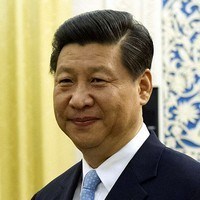China’s leadership has long vowed it will clean up the country’s bureaucracy and break up government monopolies. But the state apparatus has often seemed unwilling or unable to push through substantive implementation measures—until now. Under Xi Jinping, we are witnessing the most sustained and well-strategized attack on vested interests in at least 15 years. This campaign is unfolding at a pace and on a scale that is surpassing the expectations of most analysts and may yield substantive progress on critical issues, ultimately accelerating the marketization of the world’s second-largest economy.
Commitments from senior Chinese officials to eradicate corruption, improve regulatory adherence—particularly in the environmental and civil rights spheres—and increase economic productivity have been advanced so often in the past decade that they had become almost meaningless. As the new leadership entered office, expectations for real change were relatively low. However, in his first year in office, Xi drove through an impressive consolidation of presidential power and now appears to be wielding it with considerable political acumen and efficacy.
The first major change has been a significant downscaling of the importance attached to top-down targets. The highest-profile example is the annual headline GDP growth target, which although nominally maintained at 7.5 percent for 2014, has been informally set “between 7 percent and 8 percent” or “not lower than 7.2 percent.” Elsewhere, after years of failure, the Ministry of Industry and Information Technology has recently abandoned its heavy industry concentration targets, while the recent National People’s Congress also enshrined a “decisive role” for the markets in Chinese Communist Party literature. In a host of socio-economic areas, the government is adopting a far less dogmatic approach, more focused on creating the conditions for reform than forcing it through in the traditional, and often deleterious, focus on targets in a command economy.

